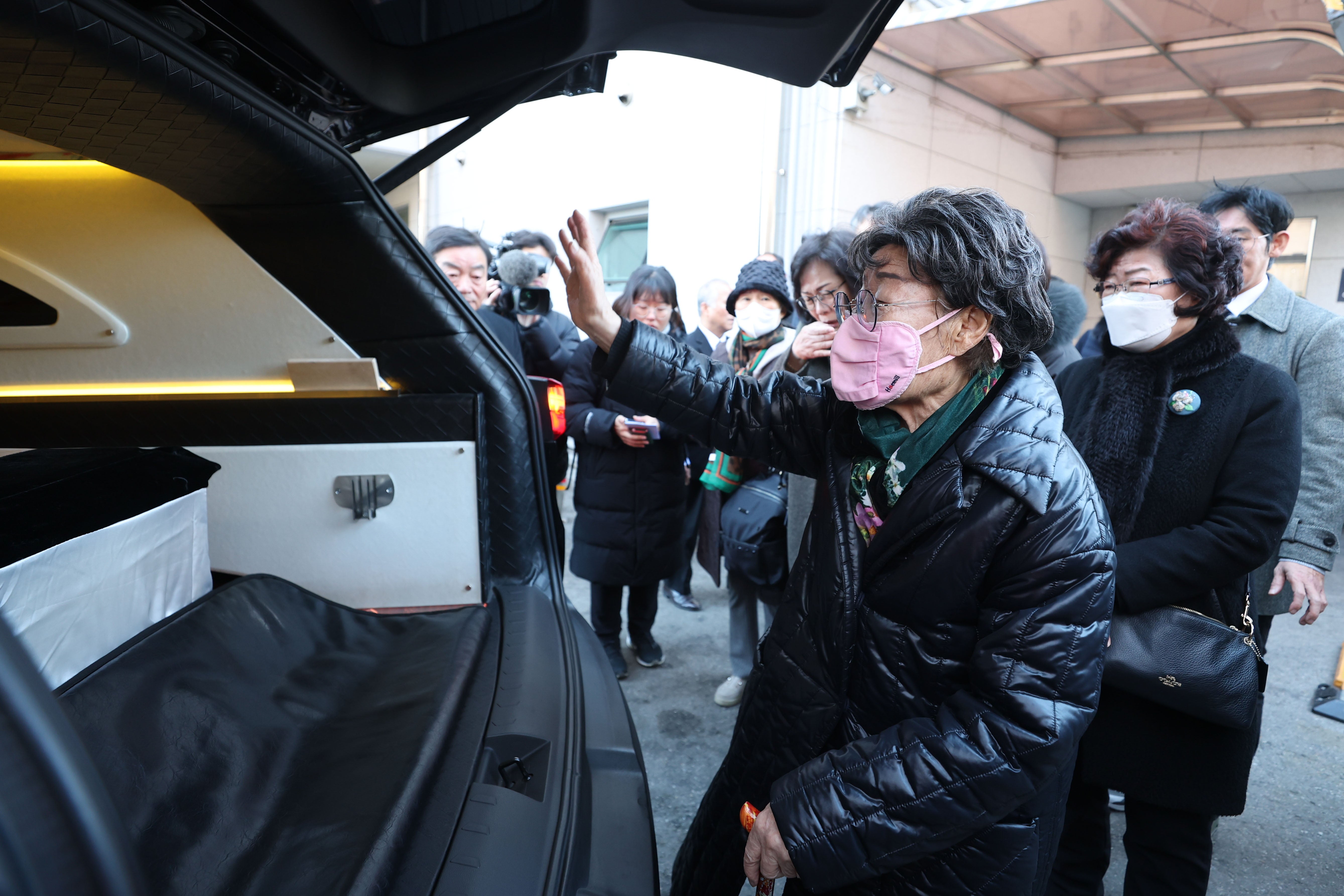Gil Won-ok, a survivor of Japan’s wartime military sexual slavery and a lifelong advocate for justice, has died at the age of 96.
The South Korean government confirmed her passing at her home in Incheon on Sunday, 16 February. The cause of death was not disclosed, but officials noted she had suffered from Alzheimer’s and age-related ailments in her final years.
A vocal critic of Japan’s refusal to take legal responsibility for its wartime atrocities, Gil dedicated decades to demanding justice for the tens of thousands of women, euphemistically called comfort women, who were forced into military brothels during the Second World War. She maintained that the fight would continue beyond her lifetime.
“They are wrong if they think it will be over when the last of us die,” she declared in 2013, reported the New York Times. “There will be our descendants continuing to campaign as long as it takes to get the apology we deserve. It will not be over with our death.”
Born in 1928 in Hoichon, in present-day North Korea, Gil was just 13 when she was taken from her home in Pyongyang under false promises of work and sent to serve as a military sex slave for Japanese soldiers in northeast China. After a year, she was released due to severe sexually transmitted infections. She later returned to China in 1942 to seek work but was once again forced into servitude in a military brothel.
Following Japan’s defeat in 1945, Gil returned to Korea, never marrying and keeping her past hidden for decades. She made a living selling street food and eventually adopted a son. In 1998, after seeing other survivors protesting in front of the Japanese embassy in Seoul, she decided to break her silence and join the movement.

Gil became a central figure in the campaign, attending weekly protests, speaking at international conferences, and travelling the world to amplify the voices of the women who had suffered. She also founded the Gil Won-ok Women’s Peace Prize in 2017, aimed at supporting female activists working towards peace and Korean unification.
Her activism took place against the backdrop of one of the most contentious historical disputes between South Korea and Japan. While Tokyo maintains that past apologies and a 1965 treaty settled all claims, survivors like Gil rejected this, arguing that their suffering had never been properly addressed.
For many South Koreans, Gil and other survivors symbolised the broader suffering endured under Japan’s colonial rule from 1910 to 1945. The movement gained significant recognition in the 1990s when women began publicly sharing their experiences, shattering decades of imposed silence. Historians estimate that up to 200,000 women – mostly Korean – were coerced into sexual slavery for the Japanese military.
Despite the painful memories, Gil found solace in music, often saying that singing had helped her endure the trauma. In 2017, she even recorded an album. “When I was lonely and felt empty at heart, I always sang songs to myself,” she once said.
At her funeral service on Tuesday, mourners paid tribute to her courage and resilience. Woo Won-shik, the speaker of the National Assembly, said in a statement: “Through her life, we have seen what human dignity is.”
The Reverend Jeong Seok-won, who led the service, reflected on the hardships Gil faced throughout her life. “She had to constantly move to avoid shame, yet she chose to expose her pain so it would not be repeated,” he said. “She overcame her past to lead a remarkable life.”
Her death leaves only seven registered survivors of Japan’s wartime sexual slavery in South Korea, all aged 90 or older.


